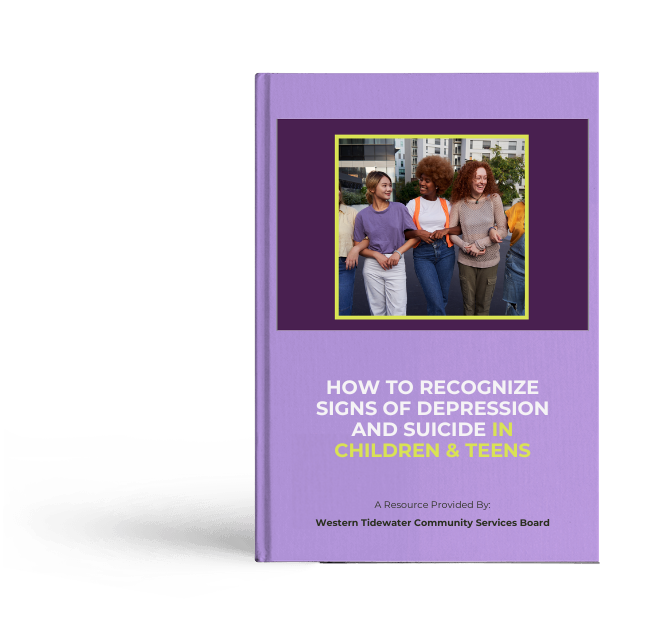Getting help for your mental health isn’t always easy. Maybe you’ve tried before and ran into roadblocks – the counselor you wanted to see had a 3-month waitlist, your insurance didn’t cover the sessions, or you couldn’t get time off work to go to appointments.
For some, just the thought of figuring out where to go, how to pay, or how to get there is enough to put counseling on hold.
Online counseling is one of the best ways to improve access to mental health services. By taking therapy out of the office and onto a phone, tablet, or computer, people who used to feel shut out of mental health care now have a way in.
Online counseling removes barriers to mental healthcare in many ways
Mental health problems are on the rise, and access to care hasn’t kept pace. In many communities, the demand for mental health services far outstrips the supply of providers.
Add in challenges like transportation, cost, and long work hours, and it’s easy to see why so many people go without the help they need.
Online counseling isn’t the only answer to the problem, but it does take down some of the most common barriers people face when trying to get support.
#1 No commute, no problem
Imagine living 45 minutes from the nearest therapist. By the time you factor in gas, traffic, and maybe even unpaid time off work, that one appointment feels impossible. Online counseling takes travel out of the equation completely. Whether you’re in a rural part of Southampton County or stuck at home with no transportation, you can connect with a counselor right from your living room.
#2 Fits better into busy lives
Parents, students, and people working multiple jobs often say the same thing: I don’t have time. Online counseling makes it easier to squeeze in a session during your lunch break, after the kids go to bed, or between classes.
That kind of flexibility helps people actually stick with counseling long term, instead of dropping out when life gets hectic.
#3 More mental health providers to choose from
In smaller communities, the number of mental health professionals is limited. You may have tried to see someone only to find they weren’t accepting new patients. Or maybe you’ve tried the therapists in your area, but need someone whose experience and approach aligns with your needs. Online counseling expands your options, giving you access to a larger mental health workforce.
#4 A little more privacy
Walking into a counseling center can feel intimidating, especially if you’re worried someone you know might see you. With online counseling, you don’t have to explain to a neighbor why you’re in the waiting room.
That extra privacy removes the fear of someone finding out you’re seeking help. Whether you’re struggling with anxiety, feeling overwhelmed, or living with serious mental illness, you can open up from the safety of your own home.
#5 Easier for those with health or mobility challenges
If you’re living with chronic pain, recovering from surgery, or managing another health condition, getting to appointments can be exhausting. Online counseling means you don’t have to push through physical discomfort just to make it to the office. For many, it’s the difference between maintaining mental health care and going without.
You may also be interested in: Is Online Therapy Effective?
#6 More insurance options than before
For years, many health insurance plans didn’t cover virtual sessions. That’s changing. Thanks to mental health parity laws and growing demand, most insurers (including private health insurance) now recognize online counseling as equal to in-person care.
This means more people can use their health insurance coverage for online behavioral health services, rather than paying out of pocket. When cost is one of the biggest barriers to treatment, this shift makes mental health coverage more accessible than in the past.
#7 Consistent care, even when life changes
People move, change jobs, or shift their schedules. In the past, that often meant starting over with a new provider. With online counseling, you can keep seeing the same mental health professionals no matter where you go.
When you’ve finally found someone you trust, that continuity makes a big difference in your progress. It means fewer disruptions, fewer retellings of your story, and more time to concentrate on your healing.
#8 Support for many different mental health needs
Online counseling isn’t just for people feeling “a little stressed.” It can be used to treat a wide range of mental health conditions, from common struggles like anxiety and depression to more complex mental health disorders, like bipolar disorder.
Counselors can help with coping skills, provide a mental health diagnosis if needed, and connect you with other behavioral health providers for more specialized care. Whether you’re facing everyday stressors or living with serious mental illness, online counseling can be part of your path forward.
#9 More affordable for many families
Even when therapy itself is covered, the “hidden” costs add up: gas, childcare, parking fees, and time off work. Online counseling removes many of those expenses, making it easier to stay consistent with care without the additional cost.
Ready to start online counseling? Request an appointment today.
We’re passionate about making sure everyone in our community has access to the mental health services they need, whether that’s online or in person. Because support should never depend on where you live, how much money you make, or whether you can take time off work.
If you’ve been putting off therapy because of travel, cost, or scheduling, online sessions may be the solution. Request an online counseling appointment today – our caring mental health professionals are ready to listen and help.








